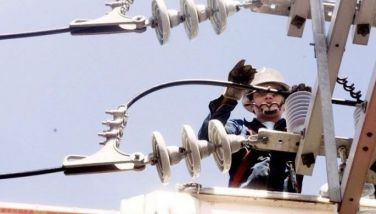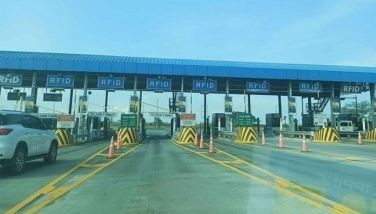Poor telco service: Adding to our COVID-19 nightmare

These days, telco service in our country is mostly erratic, if not really bad. There are good days, yes, but the bad days are quite a lot lately, adding to our COVID-19 nightmare.
One would think their ads of fast internet service were written by used-car salesmen. The promised “Mbps” is a dream in this time of pandemic, what with work-from-home setups and online schooling.
President Duterte wants to call Bethlehem on Christmas Day. Good luck.
Lucky are the ones who can fall in line in the VIP lanes and pull some strings – a phone call or two, here and there and voila, a repairman comes; but ordinary Filipinos will just have to wait in misery.
The problem is two-pronged. For one, internet, cable and mobile services are erratic. There are days when the quality is so bad you can’t even watch Netflix straight without interruption.
But this isn’t about being able to watch Netflix’s Emily in Paris or the highly fascinating, frank and fun Long Way Round series on Apple TV+, uninterrupted. Access to these subscription-based streaming services itself is a privilege.
The problem is felt really by those who need it most – public school students who need to do online schooling, and the self-employed who can’t go to an office for faster internet.
The photo of teachers struggling to find a signal on the roof of a school is an exaggeration – simply to illustrate the extent of the problem – but is on point.
The second problem is impossibly poor – and this one is consistently poor – customer service. You call telecom hotlines and you will have to waste hours on the phone, waiting for someone to pick up your call.
Lucky you if a call center agent – who is paid to be annoyingly nice – takes your call. But at the end of the call, you still have to wait for days for the lineman to come.
And then, as if Mercury is on retrograde, the repair guys don’t come as promised so you call the hotline again. And you’re back to zero.
Modus operandi
Desperate customers have resorted to paying off-duty telco technicians a thousand pesos or more just to fix their systems in a shorter time. And these technicians are making a killing.
A reader, whose internet and cable service has been out for three weeks, sent me this:
“At the time people need it most, because of online classes and work-from-home, it seems like these companies are not responsive to fix things when their service is down.
“All I get from their customer service hotline is the same prerecorded generic message and SMS stating the same. I’m cognizant of the current limitations, but a week to three weeks (and counting) without having the service back is simply cruel and inhumane.
“I’m feeling hopeless, desperate and very angry at the kind of service we, paying customers, have to endure,” he lamented.
Telcos’ response
I asked telco players where the problem stems and this was their response:
“The BPOs, which we partnered for the hotlines do not have the capability to do work from home. Most of their workers do not have good broadband at home. Besides, to prevent fraud and privacy issues, we require frontliners not to have cell phone cameras with them as they can take pictures of your personal data from their computers. So humans answering hotlines are limited and we have to resort to bots to resolve customer issues.
“On slow signal – the home is now the office, the school and the home. Most homes did not have enough plans to cover the surge. Before COVID-19, 10 Mbps would suffice for Netflix and Facebook purposes. Now with everyone at home doing Zoom, you need at least 50 Mbps;
“The critical skeleton force is also limited due to health protocols. The CSF sometimes cannot accommodate everyone on the same day.”
Better regulation, more infrastructure
Against this backdrop, we need better regulation in the telco industry. We need a regulatory body with more teeth to go after telcos when their services are bad. We also need more and better telco infrastructure.
What is the point of having a third, fourth or fifth telco when we can’t regulate the industry well?
The National Telecommunications Commission is mandated to “promote consumers’ welfare by facilitating access to telecommunications services whose infrastructure and network must be geared toward the needs of individual and business users; and to protect consumers against misuse of telecommunications entity’s monopoly or quasi-monopolistic powers by but not limited to the investigation of complaints and exacting compliance with service standards from such entities.”
Public vs private
Privatization has provided much-needed relief to poor public services. But these days, there are times when we can’t tell the difference anymore.
And the worst part is, many Filipinos have no one to turn to for complaints. Only a few have connections to the right people. Sure, disgruntled customers can barrage telco companies on social media, but that doesn’t work all the time, unless of course you’re Liza Soberano or Bela Padilla.
But ordinary Filipinos, the majority of the people in this country, just have to endure poor connections, literally and figuratively.
Iris Gonzales’ email address is [email protected]. Follow her on Twitter @eyesgonzales. Column archives at eyesgonzales.com
- Latest
- Trending


























